“Aireana” means an attitude towards life: take out our desires, thoughts, identities, feelings. It comes from “AIREA,” the imperative of the verb aerate.
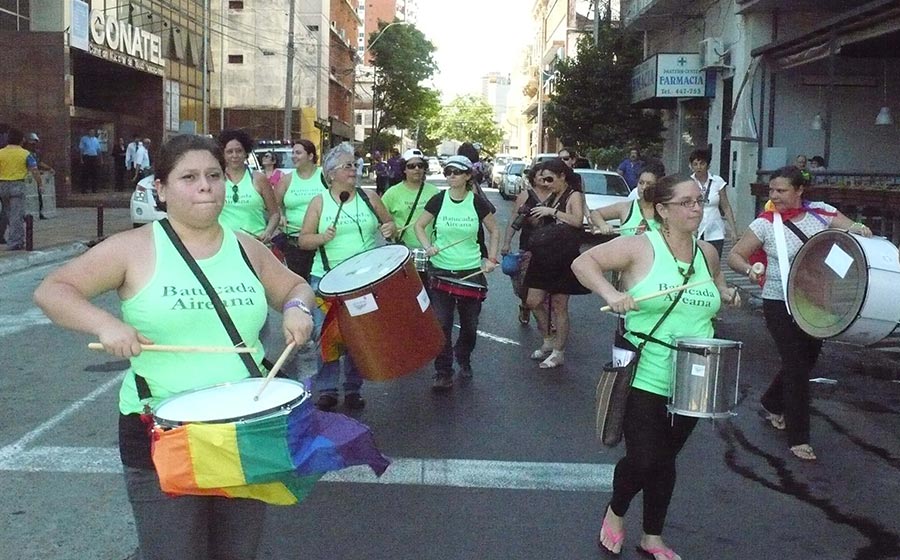
Aireana is a feminist group founded in 2003 (with legal status since 2005) that works for the rights of lesbians and promotes sexual dissidence for all people to live in freedom and without violence. Aireana means an attitude towards life: take out our desires, thoughts, identities, feelings. It comes from “AIREA,” the imperative of the verb aerate. Aireana exists to transform society to work for the rights of lesbians and LGTBI and non-discrimination from a feminist perspective. Through culture, advocacy and empowerment. Aireana aims to:
- To contribute to cultural change in Paraguayan society through the generation of educational and artistic spaces.
- To build empowerment and affirmation through training, psychological legal assistance, strengthening of other groups, self-care.
- To influence legislation, public policies at the national and international levels.
Aireana has a space called “La Serafina” featuring cultural activities, all free and open to the public on Fridays. It also organizes an international film festival themed LGTBI in Asuncion since 2005. It also has a batucada called “Tatucada”. Aireana publishes annual reports on the human rights situation for Paraguay’s LGTBI community. It has a hotline to LGTBI called “Rohendu” (“I hear you” in Guarani) with legal and psychological assistance. Aireana makes appearances in the Paraguayan state and international areas such as Mercosur, OAS, and UN.
*** En Español***
Aireana es un grupo feminista fundado en 2003 (con personería jurídica desde 2005) que trabaja por los derechos de las lesbianas y promueve la disidencia sexual para que todas las personas vivan en libertad y sin violencia las sexualidades e identidades. AIREANA significa una postura ante la vida: sacar afuera nuestros deseos, pensamientos, identidades, sentimientos. Viene de “AIREA”: imperativo del verbo airear, ventilar, sacar al airey “NA”: sufijo guaraní que se traduce como “por favor”. Aireana existe para para transformar la sociedad trabajando por los derechos de las lesbianas y LGTBI y por la no discriminación desde una perspectiva feminista. A través de la cultura, la incidencia política y el empoderamiento. Aireana tiene como objetivos:
- Contribuir a un cambio cultural en la sociedad paraguaya a través de la generación de espacios educativos y artísticos.
- Trabajar el empoderamiento y la afirmación de las personas a través de la formación, la asistencia jurídica psicológica, el fortalecimiento de otros grupos, el autocuidado.
- Incidir en la legislación, en las políticas públicas, en el ámbito nacional e internacional.
Aireana, tiene un espacio cultural llamado “La Serafina” que ofrece actvidades culturales todos los viernes gratuitas y abiertas a todo público. Además organiza un festival internacional de cine de temática LGTBI en Asunción desde 2005. También tiene una batucada llamada “Tatucada”. Publica todos los años un informe sobre la situación de DDHH LGTBI en Paraguay. Tiene una línea de atención telefónica a LGTBi llamada “Rohendu” (“Te escucho” en guaraní) con asistencia jurídica y psicológica. Hace incidencia en el Estado Paraguayo y en ámbitos internacionales como Mercosur, OEA y ONU. Últimamente ha incidido con fuerza por el acceso a las visitas íntimas de las lesbianas privadas de libertad firmando un acuerdo con el Mecanismo Nacional de Prevención de la Tortura. Integra varias redes paraguayas e internacionales como la Coordinación de Mujeres del Paraguay, la Red contra todas forma de discriminación, la Coalición LGBTI del Paraguay, la Coordinadora de Derechos Humanos de Paraguay, la Coalicion LGTBI de incidencia en la OEA, el grupo de trabajo de incidencia en el Mercosur, entre otros.
The first and only transgender and intersex organisation in Nigeria.
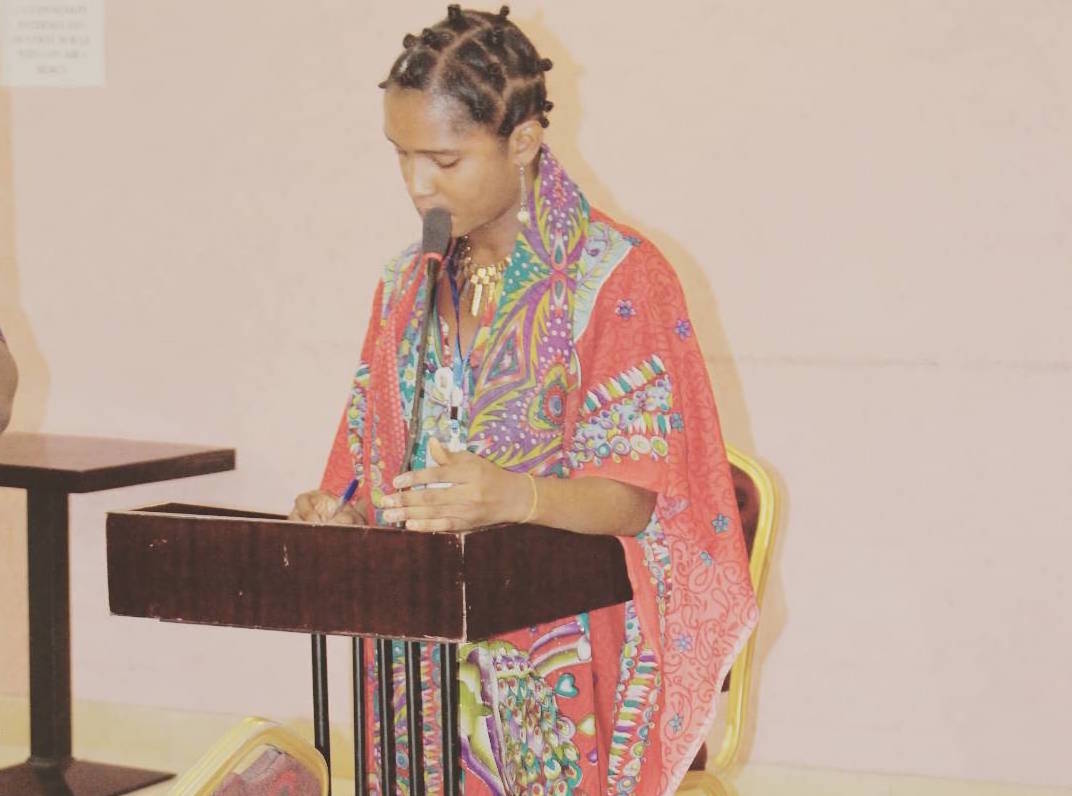
Dynamic Initiative for Healthcare & Human Rights (DIHHR) was formed in 2013 by a Nigerian transwoman, Emmanuella David-ette as a secret Facebook group called TransNigeria, which has now grown to have a membership of over a hundred and sixty and still counting with more Trans/Intersex individuals now identifying with the group. DIHHR has grown since its inception in 2013 as a Facebook forum and has now become an entity. Their mission is to promote the respect of the rights of every human being irrespective of their sexual orientation and gender identities and/or expression, and that includes health and wellbeing. They hope to become the top leading Trans and Intersex leading organisation in Nigeria, West Africa and then globally. Their mantra is: Sugar is sweet, Honey is sweeter, BUT our Relationship is the sweetest.
Point of View is a 20-year-strong feminist media advocacy organization based in Mumbai, working to amplify women’s voices and remove barriers to voice, speech and expression.
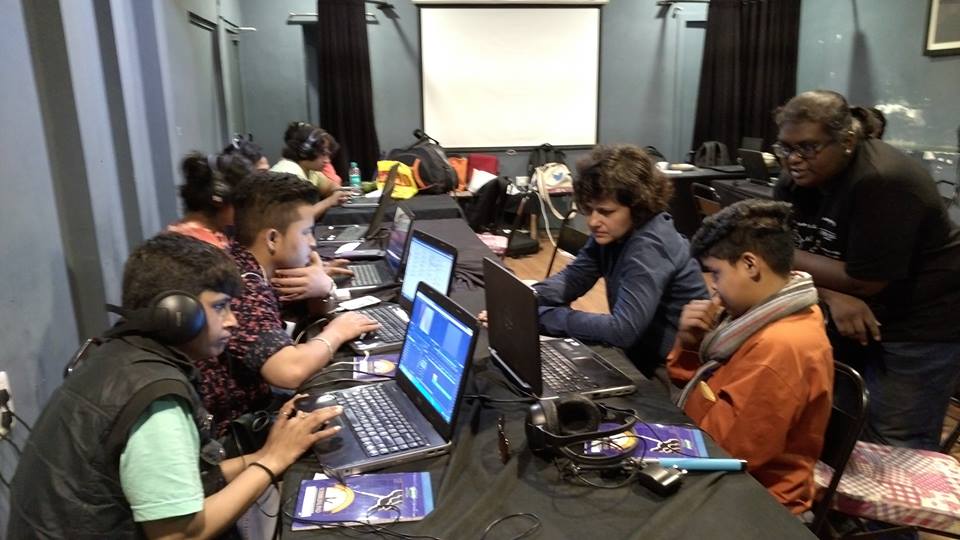
Point of View is a 20-year-strong feminist media advocacy organization based in Mumbai, working to amplify women’s voices and remove barriers to voice, speech and expression. Starting from the premise that ideas change lives, Point of View exists to change ideas and norms around gender and sexuality, to create a world in which people of all genders and sexualities have rights and freedoms that are recognized, protected and exercised. In recent years, they have also expanded work in the area of feminist capacity building and rights assertion in digital arenas, integrating gender and sexuality with efforts to protect freedom of expression, sexual expression, internet democracy and protection from surveillance.
CLPR is a progressive organization founded to reimagine and reshape public interest lawyering in India.
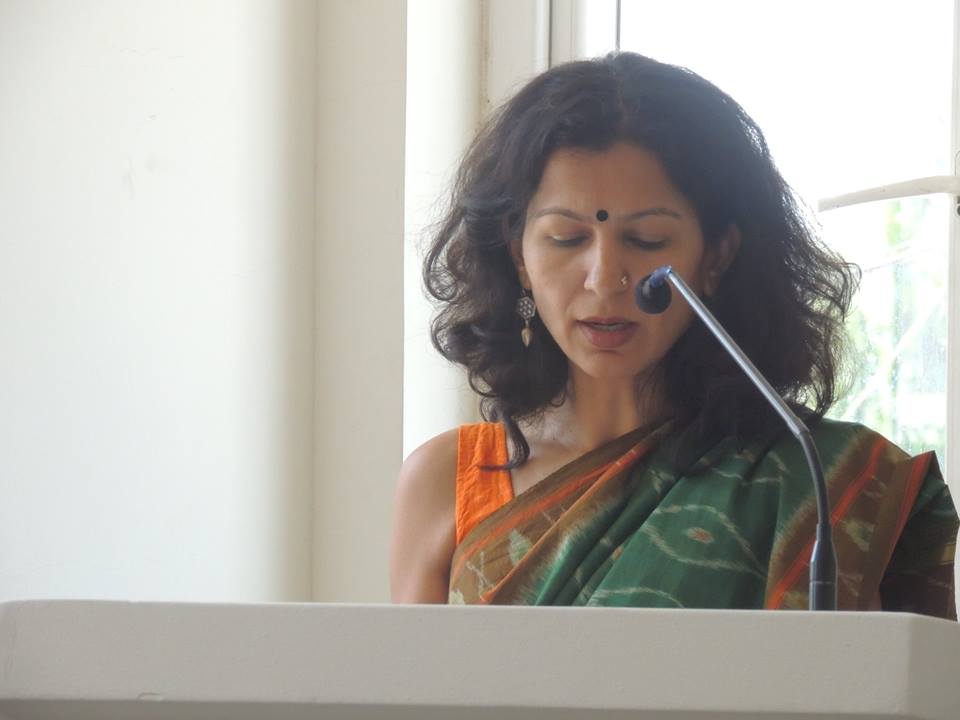
CLPR is a progressive organization founded to reimagine and reshape public interest lawyering in India. Their work aims to develop a lawyering practice rooted in constitutional and human rights values, develop new approaches to strategic impact litigation that go beyond securing legal outcomes and instead employs rigorous empirical research to ensure substantive implementation and progressive social change, and develop a method of research-based public advocacy, pedagogy and communication that deepen constitutional and civic citizenship in India. Their work with trans communities has focused on three pressing issues: criminalization and resulting police and state violence, access to public services and securing legal gender recognition.
Founded in 2010, the Thai Transgender Alliance, or TGA, supports transgender and gender diverse people in Thailand to have a better quality of life and works to advance the human rights of transgender people through advocacy, movement strengthening and leadership development strategies.
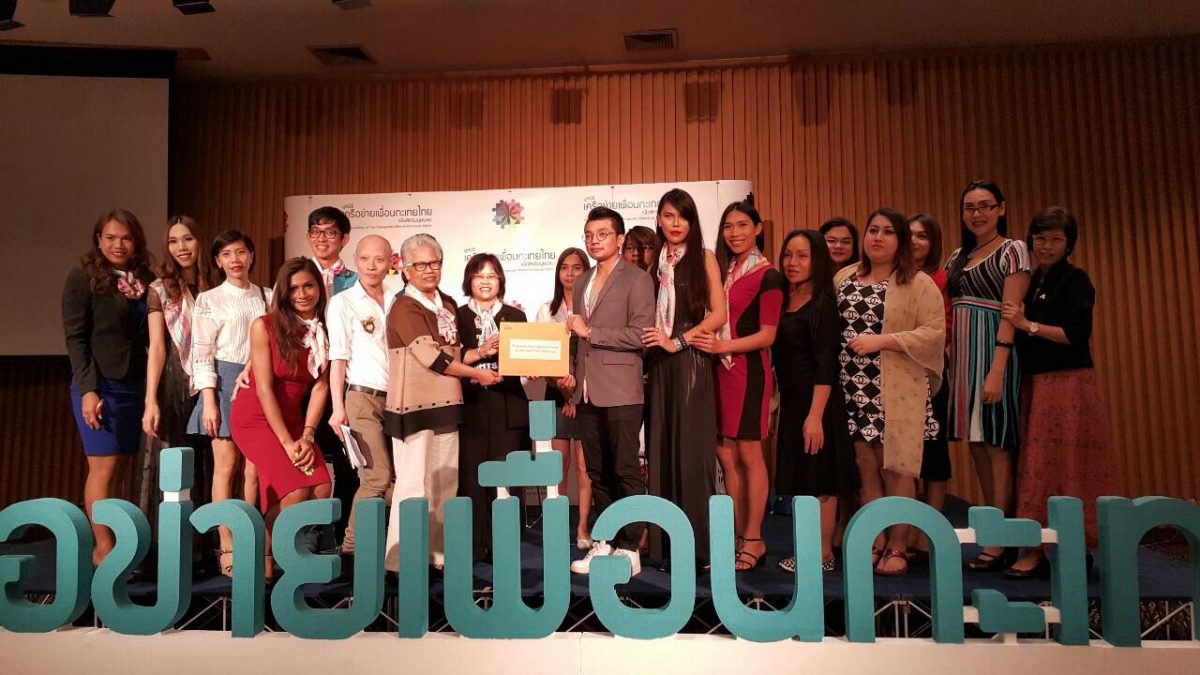
Founded in 2010, the Thai Transgender Alliance, or TGA, supports transgender and gender diverse people in Thailand to have a better quality of life and works to advance the human rights of transgender people through advocacy, movement strengthening and leadership development strategies. They are currently leading a national effort to secure legal gender recognition for trans people in Thailand, as well as working to challenge military transcription requirements (in context where all male citizens obligated to serve). They have also created a wide variety of cultural change materials regarding gender, sexuality, discrimination, access to healthcare, military conscription, and are currently working to develop guidelines for media reporting and resources for parents of transgender and gender diverse young people.
PaKasipiti is a collective of LBT people striving to create safe spaces to develop the capacities of LBT people and promote social acceptance of gender and sexual diversity in Zimbabwe.
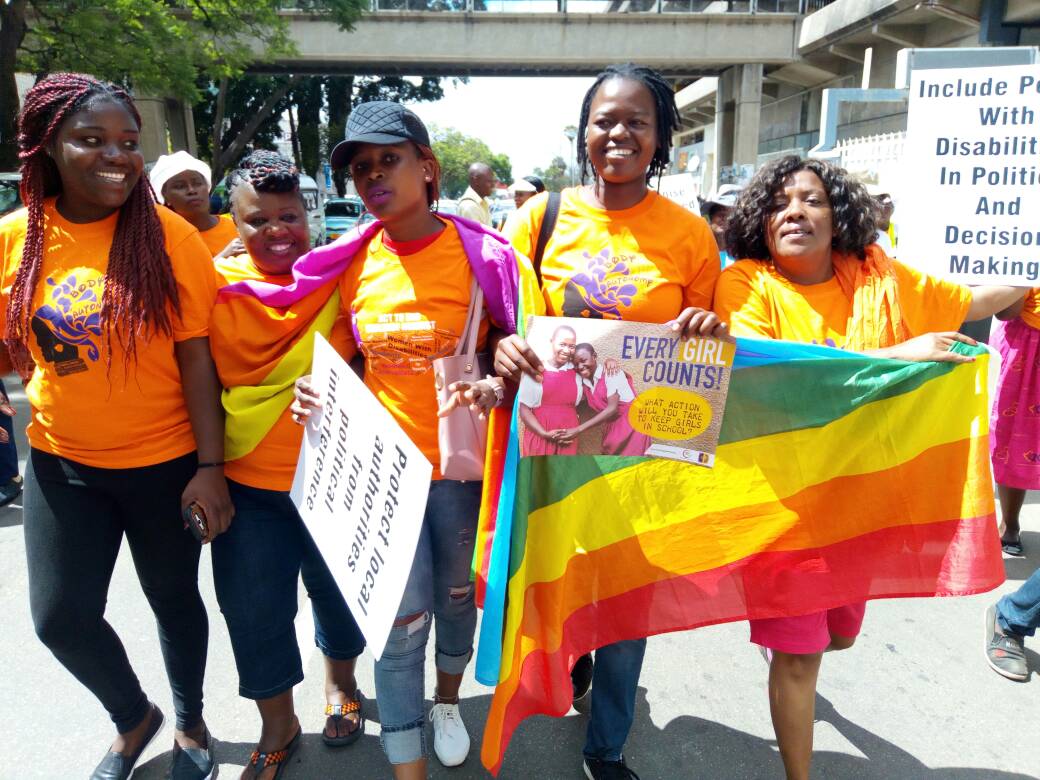
PaKasipiti is a collective of LBT people striving to create safe spaces to develop the capacities of LBT people and promote social acceptance of gender and sexual diversity in Zimbabwe. PaKasipiti translates to “at the Spring,” a place where LBT people can replenish their energies and thrive. They provide rights literacy, communication and advocacy trainings to LBT people as a basis for growing activism and raise the demands of LBT people in national and regional LGBTQ and feminist coalitions such as the Women’s Coalition of Zimbabwe, Zimbabwe Lawyers for Human Rights and Coalition of African Lesbians. PaKasipiti hosts forums for LBT people and is developing an anti-violence support network. They are also interested in training ally stakeholders and civil society partners to build their capacity to speak out on SOGIE issues in various platforms.
Voice of the Voiceless (VOVO) is a feminist collective of LBT activists working to challenge attitudes, beliefs and norms that exclude lesbian, bisexual, transgender and intersex (LBTI) communities from having their voices heard and affirming their human rights.
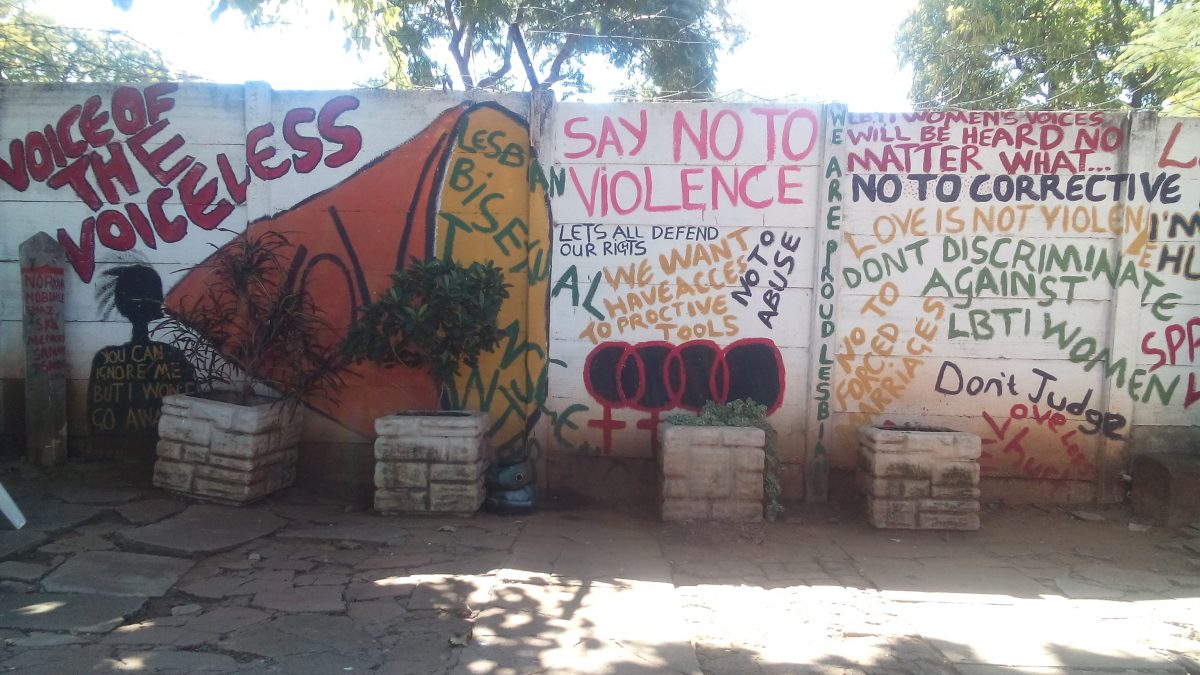
Voice of the Voiceless (VOVO) is a feminist collective of LBT activists working to challenge attitudes, beliefs and norms that exclude lesbian, bisexual, transgender and intersex (LBTI) communities from having their voices heard and affirming their human rights. At the heart of their strategy is cultural change that starts with the community and builds out towards other marginalized communities, incorporating LBTI needs and experiences into feminist movement agendas and shifting the norms upon which larger societal structures are based. At the community level, they run Solidarity Circles, which are learning and support spaces for LBTI people to come together and hold dialogues on feminism, rights, access to justice and experiences of stigma and discrimination. They also host advocacy training workshops and what they call Creative Expression Sessions to provide artistic outlets for LBTI self-expression through forms of art such as painting and storytelling, as well as cross-movement intersectionality dialogues with groups representing a diversity of marginalized women, including sex workers, women with disabilities and others.
Trans*Coalition in the Post-Soviet Space is a regional informational resource platform that unites trans* persons and their allies and aims to protect human rights and improve the quality of life of transgender communities in the region.
Trans*Coalition in the Post-Soviet Space is a regional informational resource platform that unites trans* persons and their allies and aims to protect human rights and improve the quality of life of transgender communities in the region. Currently, the Coalition unites activists from 11 countries of the region with the intention to expand to all 15 countries. It is the first and only network by and for trans* activists in this region and has already contributed to the strengthening of the nascent trans* movement in the Former Soviet Union countries and to increasing visibility of trans* issues with an online presence via website, blog posts, and social media. Thanks to the effort of Trans*Coalition, many trans* persons have become more active in their own countries as well as in the regional activism and have significantly developed their skills and leadership capacity. Importantly, the coalition has helped introduce a new political trans* discourse in the region that is rights-based, feminist, and grounded in the principle of depathologization as opposed to the prior dominant discourse that was highly medicalized.
Togetherness for Women’s Rights is a grassroots group of lesbian and bisexual women, transgender people, intersex people and sex workers in Burundi, fighting for recognition of their human rights and increasing access to health, education and means of securing their livelihoods.
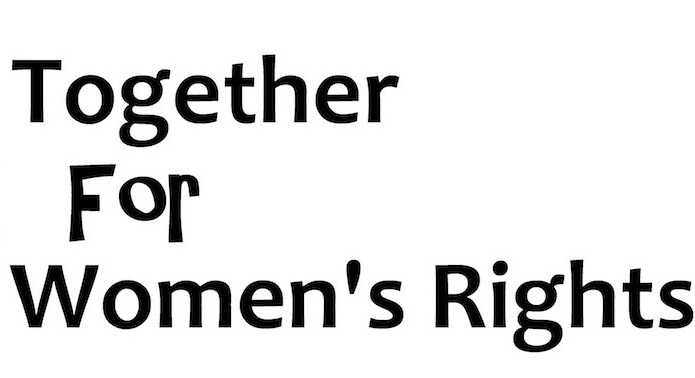
Together for Women’s Rights is a grassroots group of lesbian and bisexual women, transgender people, intersex people and sex workers in Burundi, fighting for recognition of their human rights and increasing access to health, education and means of securing their livelihoods. Formed in 2010, they have developed creative interventions to addressing pressing problems such as discrimination, exclusion in education, family rejection, forced marriage, interpersonal violence, and imprisonment and state violence. In the area of family engagement, they regularly intervene in instances where LBTI people have been kicked out of their homes, organizing paces for educating families and working with supportive families to share their experiences. They use the collective LGBTQ movement community space, the Remuruka Center, to build and deepen community through arts and cultural activities, theater, culinary workshops and film screenings. They are currently working on an advocacy campaign to promote visibility and incorporate the needs of LBTI communities in the agendas of Burundi’s national health and human rights programs and respective civil society sectors.
Labrys was formed in April 2004 by a group of young lesbian and bisexual women and transgender men with the mission to achieve equal rights, justice and non-discrimination for LGBT communities through empowering them, giving them voice and protecting their rights and freedoms.
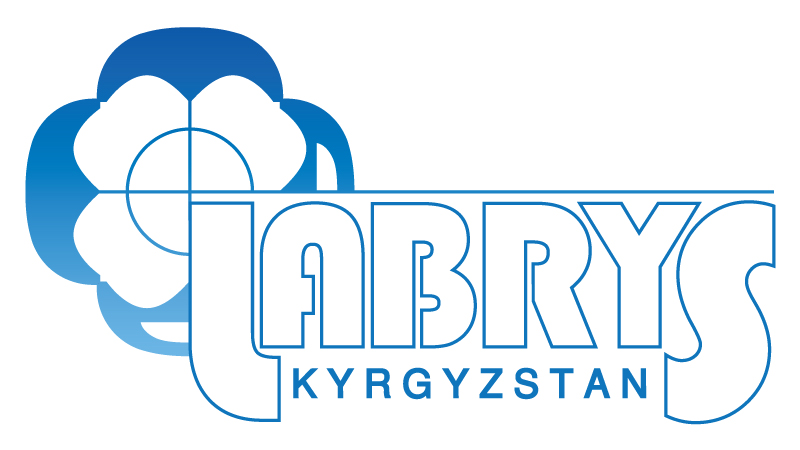
Labrys was formed in April 2004 by a group of young lesbian and bisexual women and transgender men with the mission to achieve equal rights, justice and non-discrimination for LGBT communities through empowering them, giving them voice and protecting their rights and freedoms. Initially a community-based organization working exclusively on a grassroots level, over the course of 13 years of its existence, Labrys has developed into one of the anchor organizations in the LGBTQ movement of Central Asia. Labrys was the first organization in this sub-region to start practicing monitoring and documentation of human rights abuses and violations by state actors against LGBTQ people and reporting on them using national and international mechanisms. Its current work represents a balance between community mobilization and empowerment, cross-border and cross-sector networking and partnership, public education, and regional and national policy advocacy.










